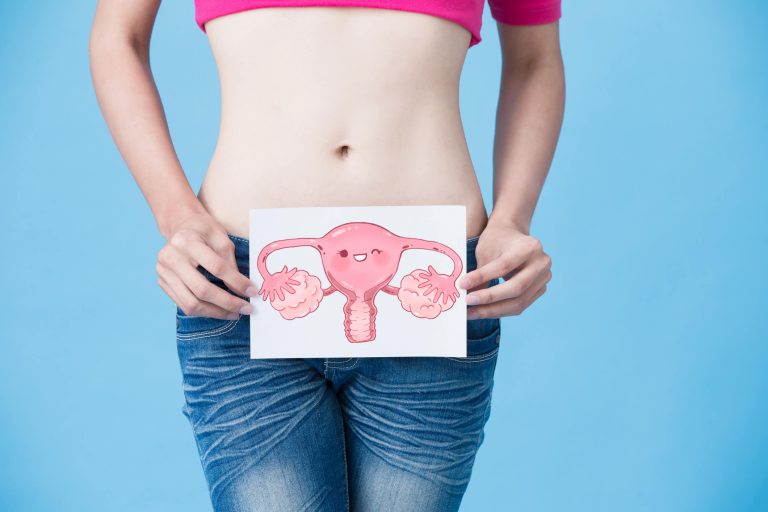Navigating Hyperemesis Gravidarum: A Guide for Expecting Parents

Hyperemesis gravidarum (HG) is a severe form of morning sickness that occurs during pregnancy. It is characterized by severe nausea and vomiting that can lead to weight loss, malnutrition, and dehydration. HG can have a significant impact on a woman’s physical and emotional well-being, and it is important for women to understand the causes and symptoms of this condition.
Causes of Hyperemesis Gravidarum

The exact cause of HG is not fully understood, but it is believed to be related to hormonal changes that occur during pregnancy. High levels of human chorionic gonadotropin (hCG), a hormone produced by the placenta, may be a contributing factor. Other potential causes include genetic factors, metabolic disorders, and psychological stress.
Symptoms of Hyperemesis Gravidarum

Symptoms of HG can include:
- Severe nausea and vomiting
- Weight loss
- Dehydration
- Malnutrition
- Fatigue
- Difficulty keeping food or fluids down
- Headaches
- Constipation or diarrhea
- Rapid heartbeat
- Faintness or dizziness
Diagnosis and Treatment

HG is diagnosed by a healthcare provider based on a woman’s symptoms. A physical examination and blood tests may also be done to check for signs of dehydration, malnutrition, or other complications.
Treatment options for HG include:
- Anti-nausea medication: Prescription medications can be used to help manage nausea and vomiting.
- Intravenous (IV) fluids: If dehydration is severe, fluids may need to be given through an IV to rehydrate the body.
- Nutritional support: A dietitian or nutritionist may be consulted to help provide a balanced diet and ensure that the woman is getting enough nutrients.
- Hospitalization: In severe cases, a woman may need to be hospitalized to receive treatment and monitor her condition.
Prevention of Hyperemesis Gravidarum

Preventing HG is not always possible, but there are some things that women can do to help manage their symptoms:
- Eat small, frequent meals throughout the day
- Avoid foods or smells that trigger nausea
- Get plenty of rest
- Try relaxation techniques, such as deep breathing or meditation
- Consult with a healthcare provider for treatment options
Hyperemesis Gravidarum Long Term Effects on Mother
One of the most significant long-term effects of HG is malnutrition. This can lead to a lack of essential nutrients for both the mother and the baby, which can have negative effects on the baby’s growth and development. Additionally, HG can cause weight loss, which can lead to long-term health problems such as anemia, osteoporosis, and other chronic illnesses.

HG can also have a significant emotional impact on the mother, including feelings of guilt, isolation, and depression. These emotional effects can continue long after the pregnancy is over, and can have a negative impact on the mother’s overall well-being.
HG can also lead to other long-term effects on the mother such as:
- Dehydration, which can lead to kidney problems
- Hypoglycemia, which can cause fatigue and confusion
- Acute fatty liver of pregnancy, which is a rare but serious condition that can cause liver failure
- Wernicke’s encephalopathy, which can cause confusion, disorientation, and vision changes.
It is important for women with HG to seek medical attention as soon as possible and to continue treatment until the symptoms subsides, to prevent long-term effects on the mother. Additionally, it is important for women with HG to have a support system in place and to talk to their healthcare provider about any emotional symptoms they may be experiencing.
Hyperemesis Gravidarum Diet
Hyperemesis gravidarum (HG) is a severe form of morning sickness that can occur during pregnancy and can make it difficult for a woman to maintain a healthy diet. A proper diet can play an important role in managing HG symptoms and preventing complications.

A diet for HG should include:
- Small, frequent meals throughout the day
- Foods that are high in protein and complex carbohydrates, such as lean meats, fish, eggs, whole grains, and legumes
- Foods that are high in vitamins and minerals, such as fruits and vegetables
- Foods that are easy to digest, such as crackers, rice, and toast
- Fluids, such as water, clear broths, frozen fruit pops, ice chips, and clear sodas (avoiding caffeine and alcohol)
It is important to note that individual dietary needs may vary and it is always best to consult with a dietitian or a nutritionist to develop a diet plan that works best for you. Additionally, some women may find that certain foods or smells trigger their nausea and vomiting, so it’s important to pay attention to any triggers and avoid them when possible.
It is also important to note that HG can lead to malnutrition and weight loss, therefore it is important to have a diet plan that is rich in essential nutrients and to consult with a healthcare provider or a dietitian to ensure that the woman is getting enough nutrients.
Conclusion
Hyperemesis gravidarum (HG) is a severe form of morning sickness that can occur during pregnancy. It is characterized by severe nausea and vomiting that can lead to weight loss, malnutrition, and dehydration. HG can have a significant impact on a woman’s physical and emotional well-being, and it is important for women to understand the causes and symptoms of this condition. Treatment options include anti-nausea medication, IV fluids, nutritional support, and in severe cases, hospitalization. It’s important for women experiencing symptoms of HG to seek help from their healthcare provider, as early detection and treatment can prevent complications and improve overall health for both the woman and her baby.
It’s also important to note that HG can have a significant emotional impact on a woman, including feelings of guilt, isolation, and depression. It is important for women to have a support system in place and to talk to their healthcare provider about any emotional symptoms they may be experiencing.
In conclusion, Hyperemesis Gravidarum is a severe form of morning sickness that can have a significant impact on a woman’s physical and emotional well-being during pregnancy. It is caused by hormonal changes that occur during pregnancy and can lead to severe nausea, vomiting, weight loss, malnutrition, and dehydration. Treatment options are available and it is important to seek help from healthcare provider as early as possible. Additionally, it is important to have a support system in place and to talk to healthcare provider about any emotional symptoms that may occur.







